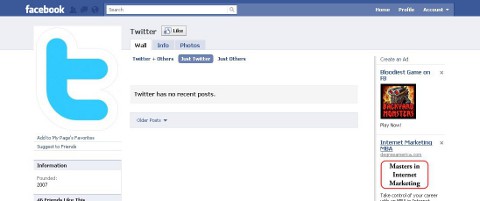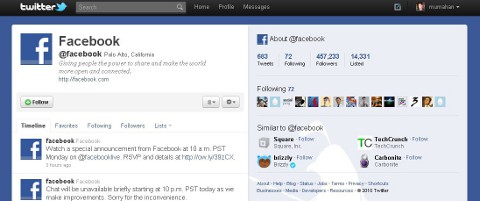
In business, we all want the best marketing strategy ever. What often gets in the way are the tactics, and response to failed tactics, which cloud our strategy. Many companies will go through the motions of tactics such as social media sharing, SEO (search engine optimization), ad buys, and etcetera, and waste a lot of precious resources. Too often, the strategy is just out of reach, yet right under their nose. Going through the motions of tactics will not make it a strategy, regardless of how well you do it.
There are many pieces to a great marketing strategy, and bringing them all together can be tricky. I hope these ideas will inspire you, and help you in a good direction. Before you dismiss any of the points I will make, I want to explain that, although I am a marketer, I am not here to take a single dollar from your pocket. I will also share why I feel qualified to offer this assessment of the best marketing strategy ever. This really is for your benefit, so make no mistake about that.
I have been a marketing guy for my entire adult life. I started my first company just after I left school early at 15, and that was over 22 years ago. Even as a kid, I knew how important marketing would be in my business. I am pretty sure that you know this about your business as well, even when it is hard to implement. It is what puts the butts in the seats for your big show. Since my time as a zit-faced teenager, I have worked on marketing projects ranging from the tiny little spark when a company is at its inception, to the raging inferno that burns it down. I have started and stoked some big fires with my marketing. It took a lot of burning for me to uncover the biggest of all challenges, but here it is … I am going to help you put some fuel on your best marketing strategy.
I will break this down into some digestible segments for you, but be ready to spend some time and effort to discover how this applies to your business. It will be worth it.
Marketing Strategy Begins With Focused Desire
I remember a relatively early time in my business career (at age 15) when my stepfather gave me a book titled “How to Sell Anything to Anybody”. It was written by a Guinness World Record holding salesman named Joe Girard. Joe learned how to sell more cars than any retail car salesman, ever. He did not do this just as a car guy, but rather as a marketing guy. He figured out what people wanted, but before he could do that, he had to know what he wanted. In that book, there is a chapter titled “It All Begins With Want”, and in Joe’s case, it started as a bag of groceries for his family. I still clearly remember his message decades later. How do you like that example of marketing longevity? I still remembered it, even without double-checking it on Google.
This is a critical piece of your best marketing strategy: You must want it! The trouble for many people is how to define “it”. After all, if somebody asks you what you want the most from your work, don’t you stammer for just a moment and have a hard time coming up with something other than the typical cliches like financial security, world peace, happy family, good health, or whatever other first-glance wish that you can come up with?
I think the answer to what you really want is a huge challenge for many people, and many businesses. You are not alone in this dilemma, but in order to get it, you will need to develop a clearly defined answer to this question. It will require confidence, persistence, and moving beyond your comfort zone. It means putting complacence in the past, and pushing your marketing “go” button.
Wanting something and being able to define it is imperative. You must be passionate about it … whatever “it” is for you. You must love what you do, or uncover enough love for it to inspire the important work and sacrifices that will otherwise be neglected.
This brings up a point about professional marketers. An important task of marketing is to look at a company and find their passion. What is it that makes them worthy of their market share? What have they neglected that could make them better? What is missing that will reflect their passion and pass that passion along to the people they hope to gain as customers? What is their best value proposition? The questions relating to market growth are numerous, but they are hard to address without knowing the “want” of an organization and defining an overall purpose.
Marketing Beyond Visibility … Matching the Need
Visibility is the easiest and most common crutch to lean on for most companies in their marketing. In fact, it often surprises me to hear people express a sense of satisfaction in simply being visible. It is important, but when that visibility is not placed well, and with the right message, the visibility alone is not enough to drive responses. You can try to sell me knitting needles all day long, and it will not work.
If you want to develop a fanatical response to your marketing, be sure to make it useful. A great lesson can be taken from the character “Big Weld” from the animated movie “Robots”. Big Weld’s mantra was “Find a need, fill a need.”
Even if your product or service proves to meet all the logic which your research and development has come to embrace, it is not truly useful until the marketing matches the need, and solves the need. You must match your offering to the desires and needs of your purchasers.
There are a lot of ways to make things visible, and a unique slant on your market can be just the trick. Whether it is presented with humor, tragedy, assistance, or otherwise, making something visible is really not all that hard. It just takes a good look at what people in your market will receive favorably, and what they will have a propensity to act upon.
Branding is massively important, and you should never dismiss the value of high-visibility within your market. Let’s be clear, though, that visibility alone is not the whole strategy. Getting closer to home and looking at yourself can emphasize points about marketing visibility. In this case, I want to point out that I have still not purchased a single Old Spice product even after watching the many humorous videos they have produced. Although they have over 167 million YouTube video views, their website traffic still only ranks a relatively few small notches above the one you are reading right now. Sure, you are more likely to buy deodorant from them than you are from me, but the point is that visibility is not everything. Their visibility alone was not able to put the fire in my veins and make me brand-loyal. The call to action failed. Perhaps they just didn’t reach me at the right time, which further emphasizes that exposure is only one part of a strategy.
Timing and Placing Your Marketing
If I saw the funny Old Spice videos while walking through the deodorant isle in the grocery store, I would probably have a quick sniff to see if I like their product. Actually, I kind of do like their product, and I remember my dad smelling like it. As a kid, I would splash it on just to smell like him. He was my hero, after all.
My wife does all of our shopping. I am really bad at shopping, because I buy into all of the marketing. In fact, my wife dreads sending me to the grocery store, because I always come home with stuff that, according to her, only I would buy. It is ironic, yes? The point is that timing and placement is important. If you want to reach my wife while she is making her shopping list, you need to know where she is, what she is putting on her list, and you need to catch her at the right time, to be sure that she lists your brand name. It must seem wildly complicated, right? Don’t worry, it is not as hard as it sounds.
Success in producing “the best marketing strategy ever” will require some careful market research, but this is an area which is likely a very weak spot for many of your competitors. Research is a significantly underestimated and underutilized area of marketing for many companies. The good news is that if you have your “want” in place, you will find this research much easier to handle. Market research is one of those areas where the sacrifices I mentioned earlier will come into play, because it can take a lot of effort to get it right.
Build in Consistency
An unsustainable marketing strategy can be worse than no strategy at all. A brand message without consistency can create business volume in unpredictable waves, and can also show the competition your weakness.
A consistent and sustainable marketing strategy will create a much steadier upward curve in your business. It will also become far more measurable, giving you the data you need to further grow your market.
Make Your Marketing Actionable
I addressed some requisite factors to the best marketing strategy, but much is lost without measurable action that provides a positive return on your investment. Reflecting back on the earlier topics, let’s consider this: If your “want” is well-defined, it will be easier to uncover the creativity to make your marketing useful and visible, and the fortitude to make it consistent. If you do not shortcut the research, you should really understand how to place your marketing with the right people. The next piece is the action.
What is the action you want? Oh, there I go again with the “want” notion, but I did express that it all starts with want, and it is the basis for all these other things.
You must have an actionable purpose to your marketing strategy. Otherwise, you will have a lot of lost efforts to account for.
Do you want somebody to make a purchase right now, or do you want them to help spread your brand because they think you are great enough to recommend to their friends? Whatever the case, this part should only come after all of the other pieces I have listed are in place. If the rest of the pieces are well-formed and in place, the action should be a natural conclusion. Since you have already given them confidence and reason to take action, be sure that you point out the action you want them to take.
Summary of The Best Marketing Strategy
I have had a lot of recent reflection on what my career in marketing boils down to, and what it has always really been about. I think I have a good answer to the burning question of “the best marketing strategy ever”, and it truly does all begin with what you want. Without focused desire, there is a lot of waste in marketing.
The best marketing strategies will come with a lot of passion. Caring, or lack of caring, is a huge determining factor to business success. I have witnessed it for over two decades, and I am not the only person who has expressed this notion. I would like to share what Gary Vaynerchuck said in his book, “Crush it!” He tells it well in this short video, and I recommend it!
If you do not have the passion, it is best to discover the people who do. That may mean asking people around you, and social media is great for this. It also may mean hiring a marketing professional to help you uncover the passion and guide you through all the other many elements for your best marketing strategy.
Here is another video worth a moment to consider.
Calling the Action
I said that I am not going to take a dollar from your pocket, and I meant it. I recently made a pact with myself to stop providing marketing consulting for clients by mid-2011. This is because I am far more fulfilled by long-term projects which often only come from working with the exclusivity of one company at a time. I simply do not get the same enjoyment by working on the ever-increasing number short-sighted projects thrown at me. I am following my “want” by moving into greater exclusivity and focus in my work. That is what I want, and I am passionate about it.
My only actionable request is that you share this with people who will appreciate it, and let them know that a guy named Murnahan is “for hire” and seeking that one company to feel passionate about enough to create the elements addressed here. I know what I want, and that is to enjoy my work marketing for a company with courage to grow. My passion slants toward the automotive and other gearhead-oriented industries where the people have motor oil in their veins and gasoline in their coffee, like me. I could market feminine hygiene products just fine, but I know what I want, and I know that I will find it.
I hope you will help me to create my best marketing strategy. In return, I am delighted to answer your questions, comments, and your telephone calls. I am always open to your brainstorms. Ring me up any time at *REDACTED DUE TO AGING WEBSITE* (*REDACTED DUE TO AGING WEBSITE*).
I have added very simple links below to help you with my call to action. Please share.
Thank you!
Podcast: Play in new window | Download





